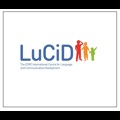
Join us for our LuCiD seminar, featuring an in-person talk on Tuesday, 9th January 2024 (11 am UK time - in-person & via Zoom). Dr Chiara Gambi (University of Warwick) will talk about The generality of expectation violation as a mechanism for language learning.
Abstract: Is it better to guess and get it wrong or not even try? We know that actively generating a guess (e.g., about the meaning of a foreign word, or a geography question) improves memory for the correct answer (compared to passive studying). Remarkably, this memory benefit occurs even when we guess incorrectly, and our prior expectations about the correct answer turn out to be wrong. Expectation violations may engender a sense of surprise that makes us more curious: For example, objects that appear to violate the laws of physics stimulate young children’s exploration of the physical world. But to what extent do expectation violations also shape children’s acquisition of their first language?
Successful computational models assume that prediction errors drive children’s learning about word forms, meanings and about the structure of their first language. But surprisingly, evidence for a role of prediction error in language acquisition is both puzzling and incomplete. Previous work in this area has shown enhanced structural priming following the violation of stronger (compared to weaker) expectations in four-to-six-year olds, suggesting that larger prediction errors benefit learning about linguistic structure. In contrast, my own previous work showed no evidence for enhanced word learning following expectation violations before the age of 8 and – in a recent pilot – we also did not find evidence for enhanced understanding of a difficult sentence structure after training designed to enhance prediction error. Nevertheless, while group-level effects are elusive, those children who are able to generate stronger expectations – and can revise them more efficiently when they turn out to be incorrect – do appear to learn more from the input they are exposed to in our lab studies.
In this talk, I will provide an overview of our recent attempts to boost children’s word and structure learning by encouraging them to generate expectations which are later violated. I will argue for an individual differences approach to the question of whether prediction error drives language acquisition, and consider the possible contributions of non-linguistic skills (inhibitory control, episodic memory) to this learning mechanism.
How to join the seminar: This seminar will take place in person at the University of Manchester, but we will provide a blended approach for anyone who is unable to attend in person. As always the seminar is free to attend & booking isn't required, just get in touch to request the zoom link and don't forget to join the seminar mailing list
Where to find us on the day: University of Manchester Theatre D, Zochonis Building. The Zochonis Building is number 60 on the campus map.

